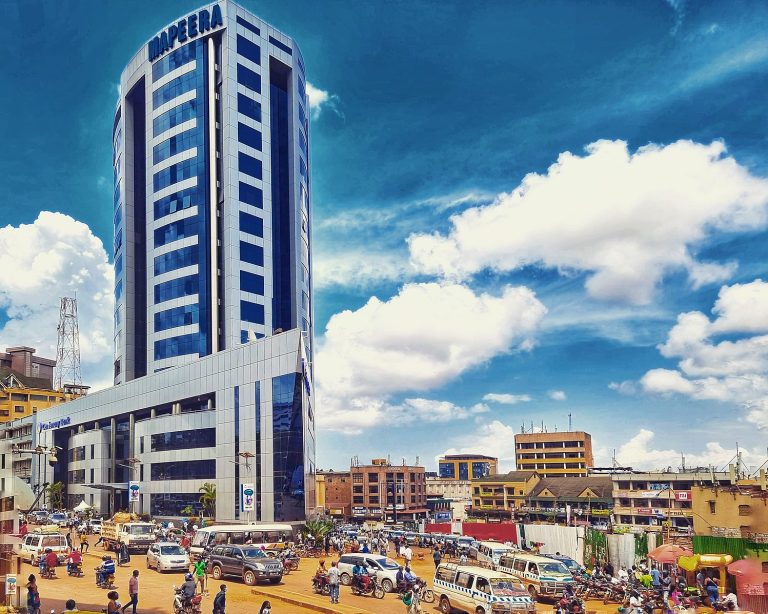Moving to Kampala: What to Expect as an Expat
Moving to Kampala offers foreigners an enriching experience filled with cultural diversity, friendly locals, and a vibrant lifestyle. The Ugandan capital welcomes people from all walks of life — whether you’re arriving for business, NGO work, diplomacy, or adventure. English is widely spoken, and society is open and accommodating. Though Kampala may lack the wide consumer variety of the West, it provides everything essential for a comfortable and fulfilling life.
Adjusting to Life When Moving to Kampala
Kampala is a city of contrasts. It’s dynamic and full of energy, yet it also comes with challenges. Uganda remains one of the poorest countries in the world, facing corruption, poor infrastructure, and high unemployment. Those moving to Kampala must be ready to adapt to these realities. Still, the warmth of its people and a thriving social scene make settling in much easier.
Where to Live in Kampala
Accommodation can range from luxury homes to modest family houses. Living in the city centre can be costly, but suburban areas such as Muyenga, Kololo, and Ntinda offer good options. If your employer provides accommodation, you’re in luck. Otherwise, real estate agents like Knight Frank Uganda can help you find housing. When choosing a place, consider proximity to your workplace and schools to avoid getting trapped in traffic, which is one of Kampala’s biggest challenges.
Getting Started After Moving to Kampala
New arrivals often receive help from their organizations, including introductions to reliable house agents and medical facilities. Some companies assign a “buddy” system to help newcomers adjust and meet people. Kampala has a large expat community, making it easy to connect and find support networks.
Utilities and Domestic Essentials
Electricity and plumbing can be unreliable in certain areas, so investing in a water tank and power inverter is recommended. Skilled repair workers can be hard to find, so seek recommendations from other expats. Paying slightly more for quality repairs is often worth it.
Communication and Internet Access
Getting a phone and internet connection is straightforward. Providers like MTN and Airtel offer affordable data packages. Internet speeds have improved, though they may still be slower than in Europe or the U.S. Many cafés across the city now offer free Wi-Fi and quality coffee, providing great working or social spaces.
Read Also
Finding Home Help and Security
Domestic staff such as nannies, housekeepers, and guards are common in Kampala households. Most people find trusted help through word-of-mouth referrals. For home security, many hire guards through major security firms. Having reliable help makes daily living smoother and provides peace of mind.
Healthcare and Insurance
Healthcare in Kampala is better than in most parts of Uganda. Private hospitals and clinics such as Nakasero Hospital and The Surgery offer good medical care. Before moving to Kampala, ensure your vaccinations are up to date, and take precautions against malaria. With insurance or modest out-of-pocket payments, medical care is accessible and reliable.
Driving and Transport
Driving in Kampala can be chaotic due to traffic congestion and unpredictable road users. However, the pace is often slow enough to react safely. Potholes are common, and road rules are loosely followed. Many expats hire drivers or use alternatives such as taxis and boda bodas (motorcycle taxis). Although convenient, boda bodas require caution—always wear a helmet and choose reputable riders.
Social Life and Meeting People
Kampala’s social life is lively and diverse. Expats connect through work, schools, and community groups. There are also mother-and-baby meetups, church gatherings, and cultural organizations like Alliance Française that host events and film screenings. Ugandans are friendly and sociable, so building friendships comes easily.
Shopping and Markets
Kampala has modern supermarkets like Carrefour and Shoprite offering imported goods. For fresh produce, Nakasero Market is the go-to place, while Owino Market offers affordable second-hand clothes from around the world. Always carry cash in small denominations, as change is often scarce. Local markets are perfect for buying fresh fruits, vegetables, and Ugandan staples such as matooke and cassava.
Eating Out and Entertainment
Dining options in Kampala are surprisingly varied. You’ll find international cuisines—Italian, Indian, Chinese, and Ethiopian—alongside traditional Ugandan dishes. The nightlife scene is vibrant, with bars, clubs, and live music venues in areas like Kabalagala and the industrial zone. For quieter evenings, there are cinemas, art galleries, and theatre performances across the city.
Leisure, Wildlife, and Activities
Life in Kampala isn’t all work and traffic. The city’s proximity to Lake Victoria offers opportunities for boat rides and lakeside dining in Entebbe and Munyonyo. Families can enjoy rafting, horseback riding, or weekend camping trips. Safari adventures are only a few hours away, with parks like Murchison Falls and Queen Elizabeth National Park offering unforgettable wildlife encounters.
What Makes Moving to Kampala Rewarding
Despite its challenges, moving to Kampala can be an incredibly rewarding experience. The city combines the charm of African hospitality with growing modern amenities. You can live comfortably, enjoy new experiences, and immerse yourself in a culture that values connection, resilience, and joy. Whether for a few months or several years, Kampala welcomes you with open arms and countless opportunities to explore, learn, and grow.

